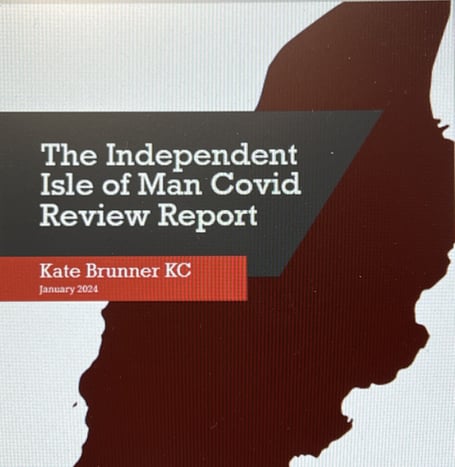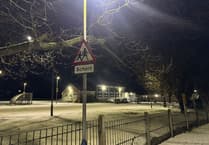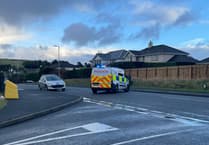The government’s approach to the Covid pandemic was ‘reasonable and successful’ – but it was high risk and Ministers moved later than they should have done to control the virus.
These are among some of the findings of the 3,500-plus page Covid Inquiry report which has been published this morning (Monday).
Inquiry chairman Kate Brunner KC insisted the government had not had any control over her team’s independent report and has not seen any part of it before it was published.
She said: ‘The report provides a full analysis of the government’s handling of the pandemic in many different areas, including education, vaccination and command structures.
‘This has been a review and not a public inquiry. My focus has been to closely analyse the planning and systems and decision-making rather than seeking to apportion blame, or indeed apportion praise.’
In broad terms, the Isle of Man’s approach was reasonable and was successful, the report concludes.
The number of deaths was relatively low. The economic cost was also relatively low and the economy survived. The time in lockdown was relatively short.
There were aspects of the island’s response that were particularly successful. These include tight border controls, the contact-tracing programme, the vaccination roll-out and the island’s testing programme.
However, it notes: ‘There were some significant issues. Emergency planning was not adequate, and there was too much focus on following the UK during the early pandemic.
‘The social care sector was not well-supported, and there were many outbreaks in care homes, including, most significantly, at Abbotswood Nursing Home in April 2020.
‘Insufficient attention was paid to borders, which were the island’s point of vulnerability, and the Steam Packet outbreak in early 2021 was one avoidable result of that inattention.’
Although the government response was broadly successful, the way in which government was managed was high-risk and could have led to far worse outcomes, the report finds.
The emergency command structure set out in pandemic plans was ignored and replaced by an unofficial group coalescing around the Chief Secretary.
There was no formal advisory group to give government scientific advice for much of the pandemic, and there was a lack of clarity about how expert advice should reach Ministers, the inquiry found.
Despite those governance issues, Ministers and civil servants worked extremely hard, with a strong ethos of serving the public.
The Isle of Man moved later than it should have done to take action to control the virus. Ministers received advice to close borders on March 16 2020 but decided not to take that action immediately.
Clinicians had set up an informal advisory group under the leadership of the medical director, as there was no formal group. Their advice to close the borders was not withheld from Ministers, but Ministers waited until after the first cases on-island before taking that dramatic step, the inquiry found.
The report says it impossible to name a specific date when Covid was first on the island but it is likely that the virus was moving freely in the community in early March 2020 before the first positive test result was confirmed on March 19.
‘The pandemic caused havoc and distress on the island,’ the report notes.
‘Lives were lost, some people remain very unwell and many people were traumatised by the experiences that they went through. People were isolated and afraid, lost businesses, were separated from loved ones for months, and could not be with loved ones when they died.
‘The infringements on people’s civil liberties were profound; people were confined to their homes or hotel accommodation. The impact on young people and the level of suffering cannot be measured or compared.’
Ms Brunner does not recommend a further, this time, public inquiry, saying she is satisfied that the terms of reference have been met by her review, but that it is ultimately a matter for Tynwald and government as to whether there should be a separate statutory inquiry.




.jpeg?width=209&height=140&crop=209:145,smart&quality=75)
Comments
This article has no comments yet. Be the first to leave a comment.